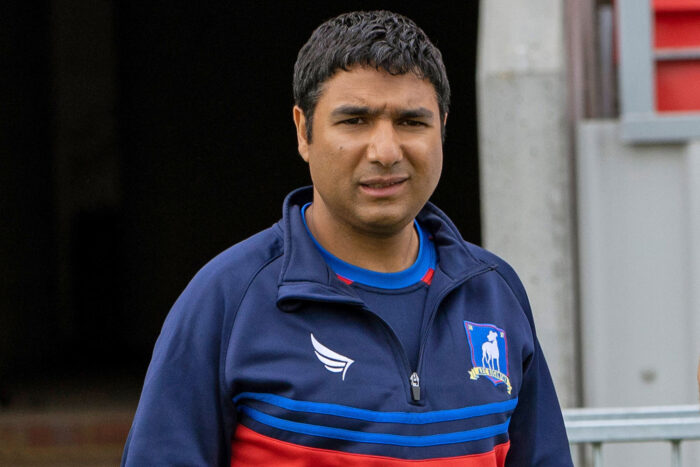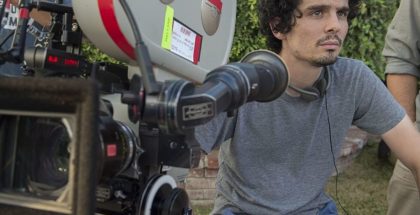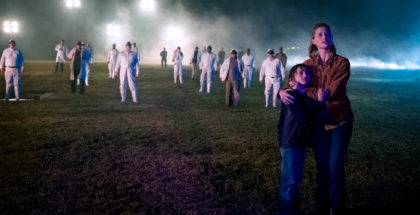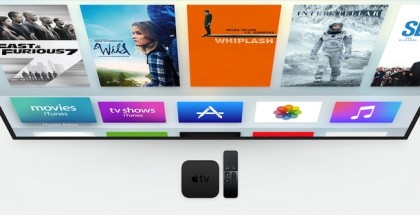Apple TV+ review: Ted Lasso Season 2 (spoilers)
Review Overview
Appreciation
10Communication
10Roy Kent
10David Farnor | On 12, Oct 2021
Warning: This contains spoilers for Season 2. Not caught up? Read our spoiler-free review here.
“I appreciate you.” Those are the three words that Ted Lasso (Jason Sudeikis) uses every time he thanks someone for something – not appreciating what they’ve done but who they are for doing it. It’s one of the countless tiny touches that make the Apple TV+ comedy such a thoughtful piece of TV, and precisely the kind of care and attention to detail that has made it capable of tackling serious topics even with the lightest of touches.
Season 2 has done that and then some, slowly laying the groundwork for a sophomore run in which Ted’s very approach to life, management and everything in between is put to the test. What began with nods to the ethical dilemmas of commercial sponsorship in the first half of Season 2 soon grew into a study of the fragile relationship between ego, ambition and authority – a nuanced exploration of how even seemingly nice guys can become nasty. That, of course, has been rooted in the growth (or regression) of Nate.
Nick Mohammed continues to do the best work of his prolific career as the former kit boy turned assistant coach, a prodigy dubbed “Nate the Great” by Ted and hailed for his tactical prowess in Season 1. But he’s since become a textbook example on how not to use a position of power, bullying new kit boy Will Kitman (Charlie Hiscock) at every opportunity behind closed doors to make himself feel more important, rather than feeling like the runt of the coaching team.
If it sounds like a surprising transformation, that’s because Ted Lasso works in quiet and subtle ways. But those ways are no less logical or heartfelt. The season opens and closes with an close-up of Nate’s eyes, and the contrast between them is as striking as the superbly orchestrated transformation in his hair colour, from black to a peppery grey that recalls Jose Mourinho – a comparison that Nate’s ego would probably welcome.
While there’s a mirrored balance there, there’s notably a lack of one when it comes to Nate and Ted, who don’t have a single scene alone together until the very end of Season 2. When Nate finally erupts and berates Ted for abandoning him, the absence of Ted in Nate’s life is something that we’ve experienced too. Instead, Nate’s had the expectations of his parents putting pressure on him to be “successful”, Roy Kent (Brett Goldstein) dismissing him as a non-romantic threat after Nate kisses Keeley (Juno Temple). He turns to social media for self-esteem, but finds there insults as well as praise from fans – a fleeting but insightful observation on the unhealthy dependency on social media that we can all have. And, while we root for Nate to get the table he wants for a celebratory family dinner, his attempts to be assertive only reinforce the idea that he has to go out and take what he thinks he’s owed – exactly the kind of thinking that leads to him outing Ted to Trent Crimm (from the Independent) for having a panic attack mid-game.
That’s the other triumph of Season 2: diving to new depths of Ted’s psychological and emotional well-being, as he struggles to cope with the expectations facing him and AFC RIchmond every Saturday afternoon and the loneliness of being separated from his ex-wife and kids. Ted’s great at supporting others, but has no support network himself – a valuable lesson that, like all of the show’s sensitive exploration of mental health, applies beyond the world of sport. And yet there’s something very specific about the show’s bold decision not just to score laughs in the Easy Sitcom Goal but also examine the taboos at play on and off the pitch within the sporting world – and, indeed, the wider pressure facing all athletes who also struggle with not only coping professionally and personally but also communicating about how they’re coping.
Toxic masculinity is a subject that has been tackled, commendably so, by a wide-ranging number of TV shows films, plays and books. Ted Lasso broaches a less-discussed issue: toxic positivity, as it explores the fact that smiling and appreciating people can’t solve every problem, at least not on their own.
“I believe in communism,” declares Ted in one inspired rom-com-homaging episode. “Rom-communism that is.” But that’s not enough to get you through life, and Jason Sudeikis builds on his infectiously optimistic, folksy charm with superbly layered work. The character moments – such as the way he continues to make US pop culture references despite the fact that nobody around him will get them – are still out in full force, but they’re accompanied by an increasingly twitchy air that sees him avoid eye contact and not know what to do with his hands. The warning signs are there, but can easily go unnoticed in a busy workplace.
The key to Ted finding a balance and opening his communication channels is the introduction of the Season 2 MVP Dr Sharon Fieldstone (Sarah Niles). A sports psychologist, her very presence is enough to unnerve Ted, and Niles’ impeccable deadpan delivery is the perfect counterpoint to Sudeikis’ relentlessly sunny disposition – she’s the cool, disciplined counterpart to his yes-nodding wooden bird, an observant figure whose body language is welcoming and eyes are ever-alert.
“The truth will set you free, but first it’ll piss you off,” she jokes to Ted, but she also opens up to him about her own problems, an act of self-disclosure to build trust and show Ted that admitting to vulnerabilities and difficulties isn’t a weakness. Ted, as a result, talks about the suicide of his father when he was a teenager, and while that breakthrough is a hugely moving moment, it’s what comes after that really leaves an impact, as Ted Lasso stops being a goldfish and forgetting the bad stuff and instead follows through on the lessons learnt – while Sharon also finds a trusting colleague and professional support in Ted. Just as his positivity spread through the whole show in Season 1, his learnt behaviour and openness to communicate goes on to shape his behaviour for the rest of Season 2, and rub off on everyone else.
The return of Jamie Tartt (Phil Dunster) is perhaps the most explicit example, as he ends up in a showdown with his dad in the changing room after a loss – and we see Roy Kent give him a supportive hug. Brett Goldstein’s Kent is another star player, bringing a foul-mouthed humour to every conversation – whether he’s on Sky Sports or in the management office. But he’s also long been one of the healthiest characters on the show, thanks to his unwavering ability to be honest about how he’s feeling – even his grunts communicate things clearly. That’s one of the reasons why his and Keeley’s relationship is so endearing: they both flourish as characters – Juno Temple’s evolution from the BFF of Hannah Waddingham’s manager, Rebecca, to businesswoman in her own right makes this the best role of Temple’s career to date – but they’re also open with each other and enjoy seeing their partner flourish. That’s despite Jamie declaring his love for Keeley – the moment when she tells Roy, as they have to pose staring into each other’s eyes for a photoshoot, has all the layers of Scenes of a Marriage packed into 30 seconds.
After Sam Obisanya’s (Toheeb Jimoh) scene-stealing storyline in the first half of Season 2, seeing his and Rebecca’s romantic fling develop is one of the joys of the second half. With Sam deciding to stay at Richmond rather than take up the offer of becoming a star footballer with Raja Casablanca (owned by Ghanaian billionaire Edwin Akufo – a hilarious turn from Sam Richardson), there’s a real hope for their future in Season 3. But that comes with added stakes, as Season 2 climaxes with the discovery that Rebecca’s ex, Rupert (Anthony Head), has bought West Ham United, which will make the former couple heated rivals once again when AFC Richmond is promoted back to the Premier League.
Just as Sam’s decision to stay has knock-on effects for Rebecca and others, the show succeeds because each character’s arc has consequences for everyone else – it’s a team drama in the truest sense (which is perhaps why the ambitious and stylish bottle episode about Brendan Hunt’s Coach Beard is the least successful part of Season 2). And so it is that Ted’s journey of self-discovery, after settling into his new job and home in Season 2, also sets up Season 3’s big villain, as Ted’s focus on himself leaves Nate feeling undervalued. Appreciating other people, and their problems, is important – and, just as Ted’s reaction to Nate is to apologise rather than blame him, that’s a lesson the former kit boy will grapple with in Season 3. The result is a funny, thoughtful and thoroughly entertaining comedy that tackles dark subjects in an uplifting way. And that really is something to appreciate.
Ted Lasso: Season 1 and 2 is available on Apple TV+, as part of a £4.99 monthly subscription, with a seven-day free trial.




















